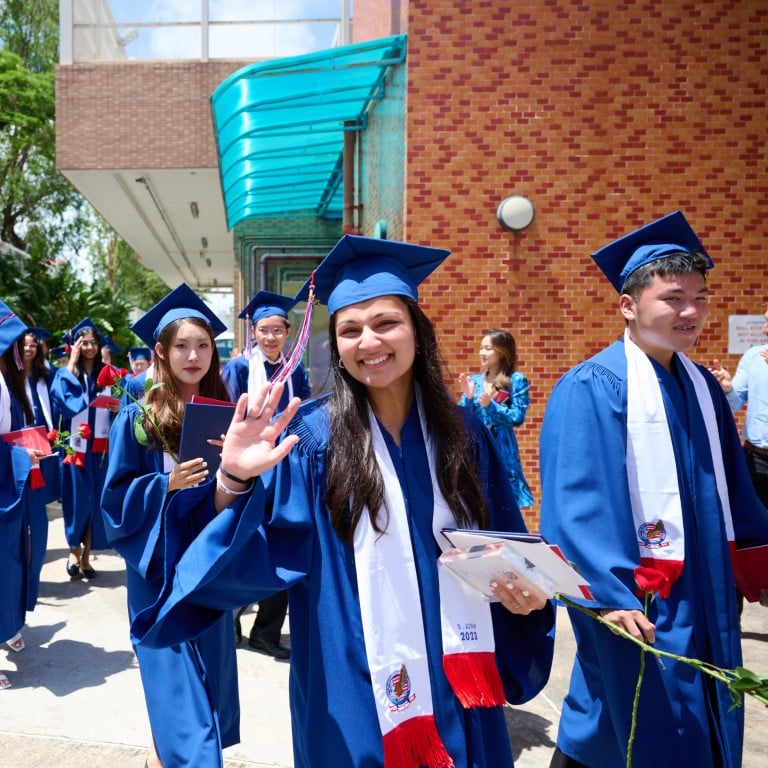
Navigating the options in today’s global classroom
- Renowned for its rigorous standards, the British education system, including the IGCSE and A-levels, has been widely adopted by international schools
- The American curricula, which adopts a holistic approach with emphasis on extracurricular activities, has gained increasing prominence in Hong Kong
Hong Kong, with its dynamic global landscape, has emerged as a hub for international education. Families seeking world-class schooling for their children are presented with a plethora of choices, each offering their own unique approach. Each system applies a distinct pedagogical style to both teaching and assessment, offering different pathways for students pursuing higher education. Here we break down the most common curricula on offer.
British Curricula
The British education system is renowned for its rigorous standards and emphasis on critical thinking. The curriculum – including International General Certificate of Secondary Education (IGCSE) and Advanced Level (A-level) qualifications – has been widely adopted by international schools, including Discovery Bay International School (DBIS), Harrow International School Hong Kong and Kellett School, providing students with a solid foundation for higher education.
The IGCSE programme serves a pivotal phase, typically undertaken in years 10 and 11, culminating in externally administered examinations. It offers a broad range of subjects across diverse disciplines, before giving students the opportunity to focus on specialist subjects at the A-level stage.
The A-level curriculum opens doors to renowned universities and academic institutions around the world. According to Peter Roberts, deputy head of secondary at DBIS, A-levels are “highly reputable and valued by most higher education institutions worldwide”.

Students typically study just three or four subjects, allowing them to gain in-depth knowledge and undertake critical analysis. “Students have flexibility in subject combinations and can then study these subjects far more deeply,” said Roberts.
The globally recognised qualification is awarded on completion of a series of assessments and exams.
“DBIS graduates have gone on to study a breadth of undergraduate courses in the UK, Europe, Hong Kong, the US, Australia, Canada and New Zealand, to name a few countries – in subjects ranging from engineering to law, medicine, the arts and sports,” Roberts continued.
American Curricula
American curricula – celebrated for its holistic approach and emphasis on extracurricular activities – has gained increasing prominence in Hong Kong, being adopted by schools including Hong Kong International School (HKIS), the American School Hong Kong (ASHK), Christian Alliance International School of Hong Kong and American International School.
Amanda Shepherd, secondary school principal of ASHK, explains that the rigorous US Common Core curriculum puts “an emphasis on foundational skills, such as literacy and numeracy, and a focus on critical thinking and problem solving”.
Rather than undertaking a cumulative final exam, students complete continuous assessments that determine their overall grades.
For students intent on pursuing tertiary education at American colleges, Advanced Placement (AP) courses give them the opportunity to delve deeper into specific subjects. While college applications do not require AP subjects, choosing this pathway allows students to showcase their academic proficiency in specific areas. The courses culminate in a standardised exam, and successful performance can earn students college credits.
International Baccalaureate
The International Baccalaureate (IB) is renowned for its global perspective and commitment to developing well-rounded, internationally minded individuals. In Hong Kong, IB programmes are gaining popularity for their emphasis on critical thinking, creativity and community engagement.
The curriculum encompasses the Primary Years Programme (PYP), which lays the foundation for students to transition to the Middle Years Programme (MYP) and finally the IB Diploma Programme (IBDP).
John Turner, secondary education adviser for the English Schools Foundation (ESF), the largest English-medium international school organisation in Hong Kong, said that the ESF follows the IB because it “fosters the skills students need to study and learn successfully”.
In this interdisciplinary curriculum, students pursue eight subjects in the MYP covering the arts, languages, science, mathematics, technology and physical education. Turner believes that “inquiry, hands-on learning and interdisciplinary approaches are so important for tackling the complex challenges of the modern world”.
Inquiry, hands-on learning and interdisciplinary approaches are so important for tackling the complex challenges of the modern world”.
Typically undertaken in the last two years of secondary school – years 12 and 13 in the British system; grades 11 and 12 in the American system – the IBDP requires students to choose six subjects from six different areas, promoting a balanced education. Assessment involves a combination of internal and external evaluations, including exams and coursework.
Mix and match
Unlike in certain other jurisdictions, international schools in Hong Kong can cherry-pick the best aspects of a curriculum to suit the needs of the student body.
ASHK, for example, has opted for its students to study the US Core Curriculum before moving on to the IBDP. Explaining this decision, Shepherd said, “The IB Diploma is highly regarded by universities worldwide, offering students a competitive advantage in the college admissions processes. The programme’s rigorous nature, and focus on independent research and writing skills prepare students for the academic challenges of higher education.”

By combining the two curricula, students receive “an emphasis on foundational skills, such as literacy and numeracy, and [the Core Curriculum’s] focus on critical thinking and problem solving” in early high school – “a perfect way to prepare students to be successful in the IBDP in grades 11 and 12”, Shepherd continued.
At German Swiss International School (GSIS), students are offered the choice of completing the German International Abitur, or the English stream option of studying for their IGCSEs followed by the IBDP.
According to Grit Cichon, deputy principal and head of the German international stream, “both curricula prepare students for the future by providing a diverse range of subjects to challenge them both mentally and physically in a healthy way”.
Bespoke options
Increasingly, international schools are providing additional pathways within their curricula for students to pursue more career-focused studies. The IB Career-related Programme (IBCP) combines academic and practical learning, including personal and professional skills, language development and service learning, along with specialised career-related studies.
The ESF offers the IBCP, and partners with the International Culinary Institute here in Hong Kong, Embry-Riddle Aeronautical University in Florida, and the Sustainability Management School in Switzerland, among other institutions.
DBIS has also made adjustments to its syllabus. As Roberts put it, “Where we feel it to be appropriate, the curriculum offering is adapted to accommodate the evolving needs of our learners, and is enriched to reflect our contextual and international needs.” As part of this, the school offers a “Discovery Learning” strand, which develops key inquiry and critical-thinking skills, as well as BTEC courses in business management, and travel and tourism. These qualifications are widely recognised, and can support entry into universities and alternate programmes of study.
Students and parents are presented with a rich tapestry of options when it comes to international education in Hong Kong. Whether the choice is the British curriculum with its emphasis on analytical thinking, the holistic American system, or the global perspective offered by the IB programme, each pathway opens doors to myriad opportunities.
For parents, the key lies in understanding the unique strengths of each system alongside the specific offerings of schools. Ultimately, the decision rests on aligning educational goals with individual aspirations, ensuring a fulfilling academic journey.

